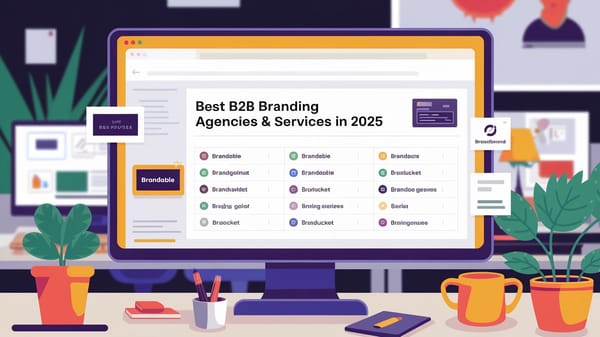20 Best ETL Tools for 2025: A Comprehensive Guide

In 2025, the demand for efficient and scalable ETL (Extract, Transform, Load) tools has reached unprecedented levels. Organizations across industries are relying on ETL tools to integrate, transform, and manage vast amounts of data from diverse sources. These tools are essential for businesses to make data-driven decisions, streamline operations, and gain a competitive edge in the market. This report provides an in-depth analysis of the 20 best ETL tools for 2025, highlighting their features, advantages, and suitability for various use cases.
You can also visit Oncely.com to find more Top Trending AI Tools. Oncely partners with software developers and companies to present exclusive deals on their products. One unique aspect of Oncely is its “Lifetime Access” feature, where customers can purchase a product once and gain ongoing access to it without any recurring fees. Oncely also provides a 60-day money-back guarantee on most purchases, allowing customers to try out the products and services risk-free.
Oncely is hunting for the most fantastic AI & Software lifetime deals like the ones below or their alternatives:

What is ETL?
ETL refers to the process of extracting data from multiple sources, transforming it into a usable format, and loading it into a target database or data warehouse. This process is critical for data integration, analytics, and decision-making. ETL tools automate these tasks, ensuring accuracy, efficiency, and scalability.
Criteria for Choosing ETL Tools
When selecting an ETL tool, organizations should consider the following factors:
- Ease of Use: Intuitive interfaces and no-code/low-code options.
- Scalability: Ability to handle large volumes of data.
- Integration: Compatibility with diverse data sources and platforms.
- Cost: Pricing models that align with the organization’s budget.
- Support and Community: Availability of customer support and active user communities.
Top 20 ETL Tools for 2025
1. Hevo Data
Hevo Data is a highly-rated ELT platform that supports over 150 data sources, including MySQL, BigQuery, and Redshift. It offers a no-code interface, real-time data replication, and robust system resource optimization.
2. Integrate.io
Integrate.io simplifies data integration with its intuitive interface and comprehensive features for ETL, ELT, and data transformation. It is ideal for businesses seeking a user-friendly solution.
3. Fivetran
Fivetran is known for its automated data pipelines and seamless integration with cloud platforms. It supports real-time data synchronization and requires minimal maintenance.
4. Talend Open Studio
An open-source ETL tool, Talend Open Studio offers extensive customization options and supports complex data transformations. It is well-suited for developers and data engineers.
5. AWS Glue
AWS Glue is a serverless ETL service that integrates seamlessly with other AWS services. It supports both ETL and ELT processes and is ideal for organizations using the AWS ecosystem.
6. Azure Data Factory
Azure Data Factory provides a cloud-based ETL solution with support for hybrid data integration. It offers a wide range of connectors and is highly scalable.
7. Google Cloud Dataflow
Google Cloud Dataflow is a fully managed ETL tool that supports real-time and batch data processing. It is designed for organizations leveraging Google Cloud services.
8. Informatica
Informatica is an enterprise-grade ETL tool that offers advanced data integration, data quality, and governance features. It is widely used in large organizations.
9. Matillion
Matillion is a cloud-native ETL tool optimized for platforms like Snowflake, Redshift, and BigQuery. It provides an easy-to-use interface and supports complex data transformations.
10. Airbyte
Airbyte is an open-source ETL tool that supports custom integrations and connectors. It is highly flexible and suitable for organizations with specific data integration needs.
11. Singer
Singer is a lightweight, open-source ETL tool that uses JSON-based “taps” and “targets” for data extraction and loading. It is ideal for developers seeking a simple yet effective solution.
12. Pentaho Data Integration
Pentaho Data Integration (PDI) is an open-source ETL tool that supports data cleansing, migration, and enrichment. It is widely used for big data management.
13. Dataddo
Dataddo is a versatile ETL tool that supports data extraction from APIs and cloud services. It offers a no-code interface and is suitable for non-technical users.
14. Estuary Flow
Estuary Flow is a cloud-native ETL tool that specializes in real-time data integration and Change Data Capture (CDC). It supports streaming SQL and TypeScript transformations.
15. dbt (Data Build Tool)
dbt focuses on data transformation and is widely used in conjunction with ELT workflows. It is a favorite among data analysts and engineers.
16. Oracle Data Integrator
Oracle Data Integrator (ODI) is a robust ETL tool designed for enterprise environments. It supports high-performance data integration and transformation.
17. SAP Data Services
SAP Data Services is an enterprise-grade ETL tool that offers advanced data cleansing, transformation, and integration capabilities. It is ideal for SAP-centric organizations.
18. SnapLogic
SnapLogic is a cloud-based ETL tool that supports AI-driven data integration. It offers pre-built connectors and is suitable for organizations seeking a modern, scalable solution.
19. Apache Kafka
Apache Kafka is a distributed streaming platform that supports real-time data integration and processing. It is widely used in big data environments.
20. PipelineWise
PipelineWise is an open-source ETL tool designed for data replication and transformation. It supports multiple databases and is ideal for organizations with diverse data sources.
Conclusion
The ETL tools listed above represent the best options available in 2025, catering to a wide range of use cases and organizational needs. From open-source solutions like Talend and Airbyte to enterprise-grade platforms like Informatica and SAP Data Services, there is an ETL tool for every requirement. When choosing an ETL tool, organizations should carefully evaluate their data integration needs, budget, and existing technology stack to make an informed decision.





